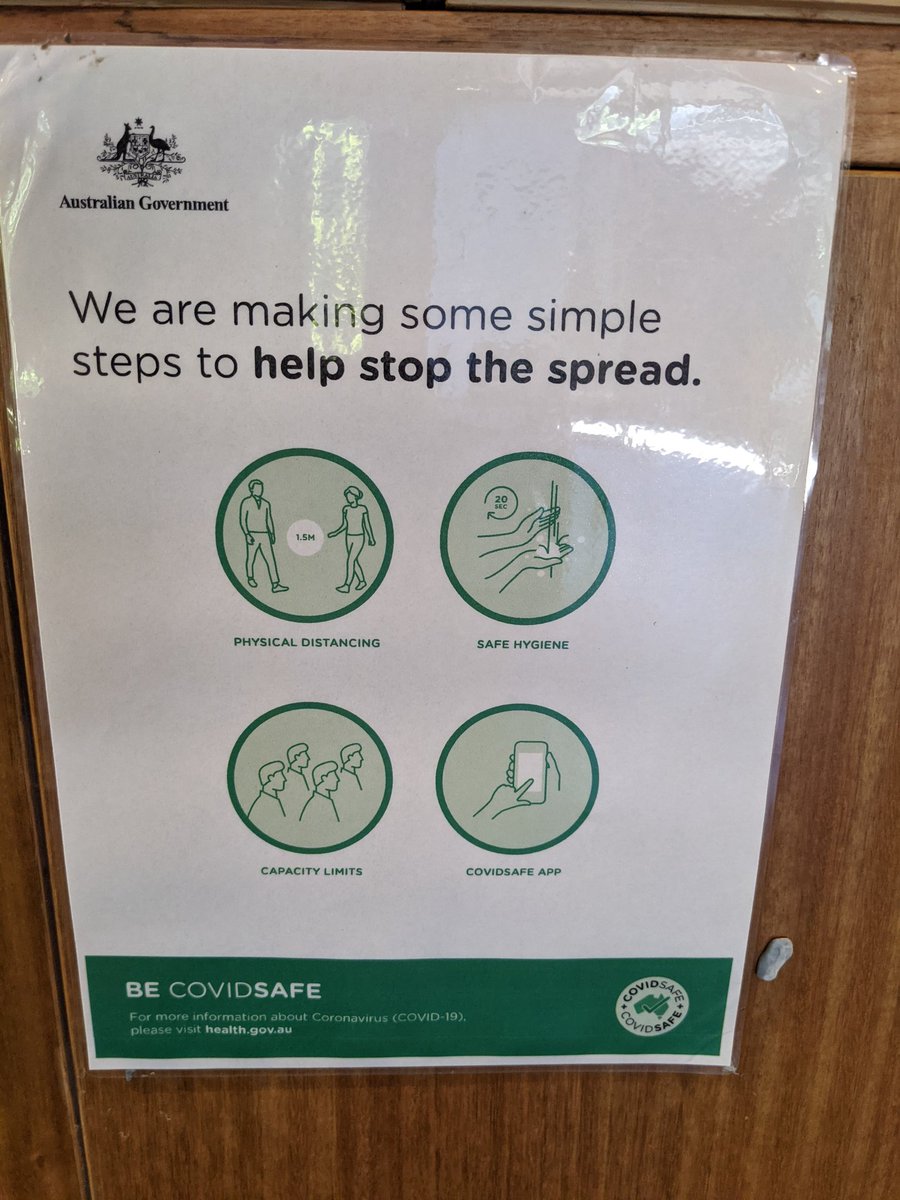
22 months in, and I still can find more accurate info about Covid on Twitter than if I had to instead rely on articles in NYTimes by Monica Gandhi, New Yorker by Dhruv Khullar, etc, and official signs from my govt (all emphasize hand-washing) 1/
I went from giving keynote talks warning about disinformation (2019) to helping @jeremyphoward make multiple YouTube videos contradicting the CDC & WHO (#masks4all, starting March 2020), even though I believe trustworthy institutions are essential for combating disinfo. 2/
Our institutions failed: saying masks don’t work; denying covid airborne; failing to address #LongCovid; treating disabled & elderly as expendable; claiming pandemic over; wishful thinking as policy; overpromising vaccines definitely end pandemic; ignoring pre-symptomatic 3/
There was plenty of scientific evidence FROM THE START to suggest that covid may be airborne, it is not just like the flu, masks help, post-viral illness can cause permanent mass disability, spread can be pre-symptomatic,.. This is not about being right "in hindsight" 4/
And these failures are ongoing.
🧵of 🧵 of my various attempts over the past 22 months to make sense of these failures. 5/
🧵of 🧵 of my various attempts over the past 22 months to make sense of these failures. 5/
March 2020: I reshared @noUpside essay on move from consolidated media w/ consensus narrative (everyone mostly heard the same “facts”, even if those were sometimes lies of the powerful) → information inundation of social media & fracturing of narratives
https://twitter.com/math_rachel/status/1241120057331245057?s=20
While social media is rife with disinfo, I was able to find higher quality covid information (and sooner) on Twitter than what friends/family found in mainstream media. I still consider this to be the case. 7/
https://twitter.com/math_rachel/status/1241120058912407560?s=20
Many voices that have been excluded from prominent media & scientific advisory positions (in govts, public health orgs) can be found on social media, including voices of disabled people, aerosol scientists, research from experts outside the West 8/
https://twitter.com/math_rachel/status/1468066975616102400?s=20
Related: race, gender, & prestige influence who is perceived as "rational" and who is perceived as "too emotional" and "panicking" (hint: it is often not about the evidence or quality of their arguments) 9/
https://twitter.com/math_rachel/status/1247226189720227846
April 2020: I listed the overemphasis on randomized control trials & precision (we don’t have data on the EXACT new thing), CDC & WHO not designed for real time updates, & how ignoring threats seen as more “rational”. All of these are still issues 10/
https://twitter.com/math_rachel/status/1247226180450779141
Only later did I see how emphasizing hand-washing aligns with an ideology of personal responsibility as the solution to systemic problems. Improving the quality of our shared indoor air require a more collective response 11/
https://twitter.com/math_rachel/status/1439410926982107138?s=20
Late April 2020: thread of quotes from a great article by @edyong209 on why the pandemic was hard to understand 12/
https://twitter.com/math_rachel/status/1255509562179936257
Mid-May 2020: A thread on the victim-blaming & lack of empathy I was seeing for covid patients, including those suffering from "long-tail covid." This has been an ongoing issue. 13/
https://twitter.com/math_rachel/status/1261391814436798465?s=20
July 2020: Articulating how patients have crucial medical expertise, distinct from doctors. I shared this (+ some of my personal story) in my @StanfordAIMI keynote 14/
https://twitter.com/math_rachel/status/1285022961737428992?s=20
Oct 2020: The psychology of many people not being able to recognize their own vulnerability is significant: believing that they will never be disabled or chronically ill, that they won't be impacted, etc 15/
https://twitter.com/math_rachel/status/1320392387600867328?s=20
[Long personal interlude while I immigrated, with my partner and our child, during the pandemic, changed jobs, & spent months getting set up in my new country]
Sept 2021: Reasons why western countries believe in their own exceptionalism and refuse to learn from other countries’ experiences, even as they keep making the same mistakes 17/
https://twitter.com/math_rachel/status/1434671339210563584
The evidence was becoming increasingly clear of coordinated, corporate-funded campaigns to downplay covid, with parallels to climate change denialism 18/
https://twitter.com/math_rachel/status/1439410894992134145?s=20
Medicine is inherently political: which hypotheses get funded, whose expertise is recognized, whose suffering is counted. 19/
https://twitter.com/math_rachel/status/1441569388289609728?s=20
Oct 2021: Pre-pandemic, I had been frustrated by how disagreeing with doctors is painted as inherently “anti-science”, given how often doctors disbelieve patients with chronic illness (like me). The pandemic heightened this. 20/
https://twitter.com/math_rachel/status/1448104503312412677
I'm sometimes told I should shut up about public health issues. Here is part of why I want people from all backgrounds & domains to be able to participate in discussions of issues that impact them 21/
https://twitter.com/math_rachel/status/1448406184021532677
Nov 2021: There is often more focus on whether the public trusts key institutions, than on how those institutions have eroded our trust (& what they could do to rebuild it) 22/
https://twitter.com/math_rachel/status/1465904363126149124
It is disturbing to watch doctors share misinformation while advising the government, writing for mainstream media pubs, being quoted by journalists, etc. 23/
https://twitter.com/math_rachel/status/1466860435223678976
Dec 2021: Gatekeeping & lack of diversity contribute to why our institutions sometimes get things so wrong 24/
https://twitter.com/math_rachel/status/1468066961825222659?s=20
Pre-pandemic, I knew that doctors often disbelieve patients and that medical system can be error-prone, hostile to patients, & traumatizing, yet I still didn't expect the pandemic response to be quite this bad
essay I wrote in Jan 2019: medium.com/@racheltho/the… 25/

essay I wrote in Jan 2019: medium.com/@racheltho/the… 25/


• • •
Missing some Tweet in this thread? You can try to
force a refresh
















